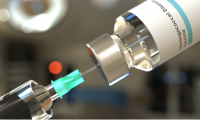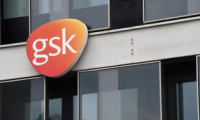-
$2.2 billion settlement, GSK pays for safety
- Source: drugdu
- 72
- October 14, 2024
-
GSK, Flagship Pioneering Commit $150M to Start R&D Pact for Novel Drugs and Vaccines
- Source: drugdu
- 108
- July 31, 2024
-
GSK buys COVID, influenza vaccines from retrenching CureVac
- Source: drugdu
- 97
- July 6, 2024
-
GSK Pays CureVac €400M to Pick Up Clinical-Stage mRNA Vaccines for Infectious Diseases
- Source: drugdu
- 90
- July 5, 2024
-
FDA Approves GSK’s Arexvy to Prevent Respiratory Syncytial Virus in Adults Aged 50-59 with Increased Risk
- Source: drugdu
- 102
- June 12, 2024
-
GSK acquires Elsie to unlock oligonucleotide therapeutics
- Source: drugdu
- 85
- June 11, 2024
-
GSK’s Quest to Bring Myeloma Drug Back to the Market Stops for a Data Drop at ASCO
- Source: drugdu
- 115
- June 4, 2024
-
GSK’s Five-in-One Meningococcal Vaccine Under Review by the FDA
- Source: drugdu
- 143
- April 20, 2024
-
GSK’s Omjjara recommended by NICE to treat myelofibrosis patients with anaemia
- Source: drugdu
- 158
- February 21, 2024
-
GSK concludes Aiolos Bio acquisition for $1.4bn
- Source: drugdu
- 166
- February 20, 2024
your submission has already been received.
OK
Subscribe
Please enter a valid Email address!
Submit
The most relevant industry news & insight will be sent to you every two weeks.













